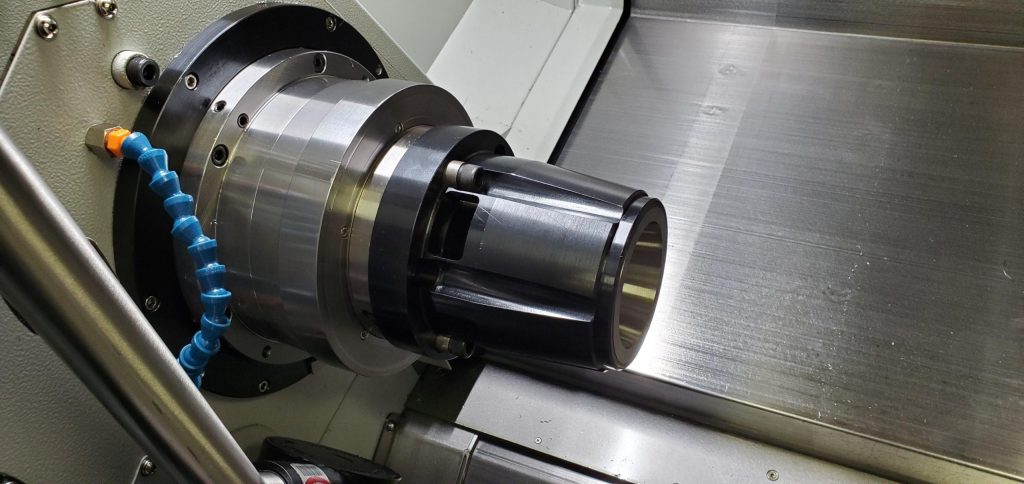22c CNC Collet Chucks
22c CNC Collet Chucks
CNC collet chucks and collets are an alternative to pneumatic or hydraulic workholding devices and are well-suited for high production runs. Standard shapes such as round, square and hexes can be held accurately and quickly compared to a three or four jaw chuck.

Zagar Inc. increases design and engineering services for customers otherwise seeking custom workholding for lathe operations. Zagar 22c CNC collet chucks are offered along with standard collets that are modified to mate exactly with unique die cast part configurations. These parts can be held securely on either ID or OD surfaces, providing increased machining access.
One CNC collet chuck holds each modified collet. Working together with a draw-bar spindle and coupling with the back of the collet chuck, the clamp mechanism is actuated inside to securely locate and hold the part in a single step. The setup helps to ensure machining performance while providing very low runout as well as quick changeover to keep machine uptime high.
CNC collet chucks and collets are an alternative to pneumatic or hydraulic workholding devices and are well-suited for high production runs. Standard shapes such as round, square and hexes can be held accurately and quickly compared to a three or four jaw chuck.
"Through design and engineering, we can help customers with virtually any special need", says Brian Zagar, vice president of sales for Zagar Inc. "And often times the solution is simpler than you'd expect, with measurable reduction in man hours and increases in machine utilization", Zagar continued.





